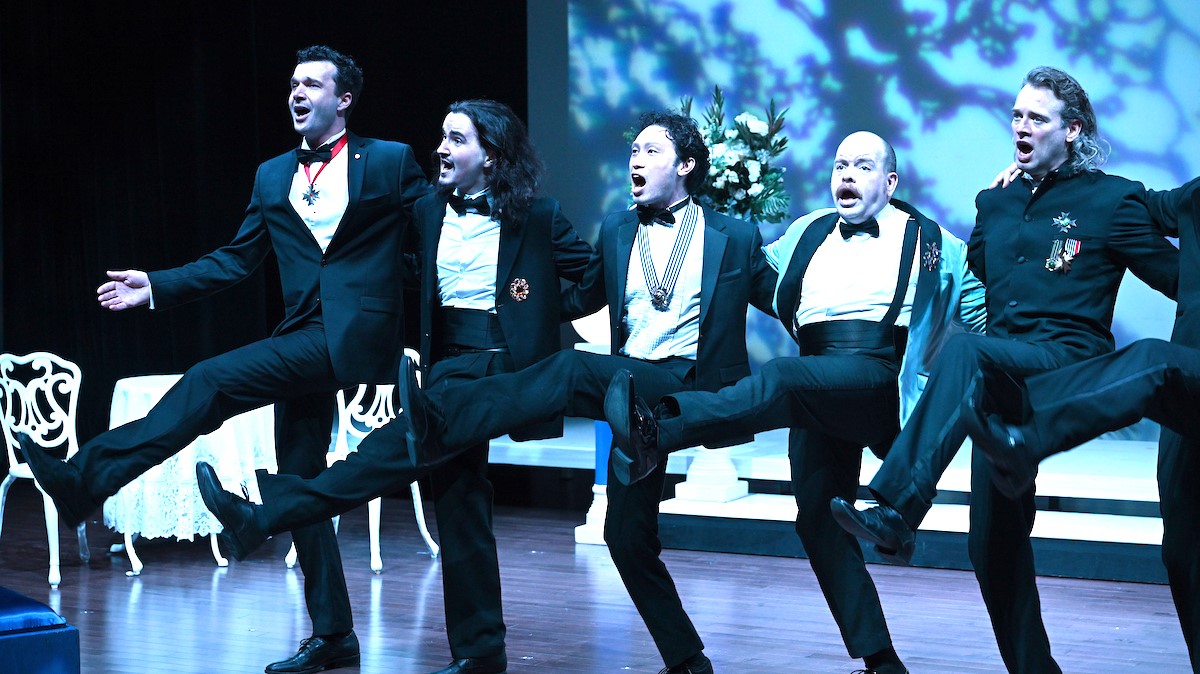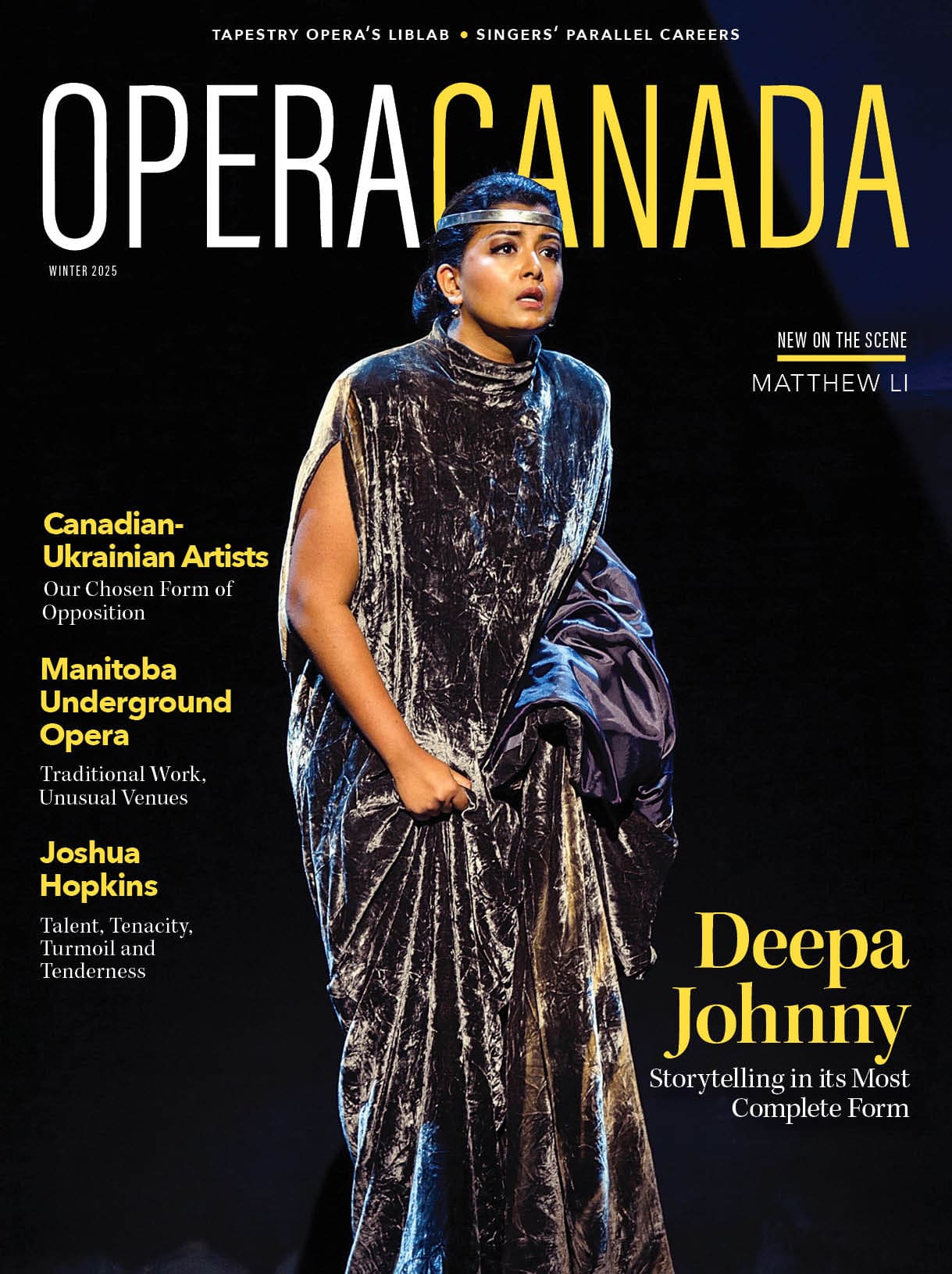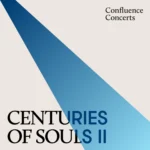When I was a young child, I was fascinated with my parents’ 1960 Reader’s Digest Treasury of Great Operettas boxed LP set. I would faithfully listen to the 9 records, while pouring over the accompanying book, The Golden Age of Operetta, with its synopses and beautiful black and white photos of lavish productions. My particular favourite was The Merry Widow, featuring Metropolitan opera star, Anna Moffo. This early exposure to Lehár’s masterpiece led me to see many productions, including one at the Met, starring Placido Domingo and Frederica von Stade. So it was with great interest and some trepidation that I headed to the Jane Mallett Theatre on December 30 to put yet another notch in my Widow belt.

Nathan Keoughan (Danilo) and Gregory Finney (Baron Zeta) © Gary Beechey
My apathy was swiftly put to rest the moment Derek Bate lifted his baton to conduct the skilled twelve-piece orchestra. Bate’s pacing was spot on, and his precision during the frantic party scenes contrasted splendidly with his sensitive guidance in the love duets, bringing out the best in both the singers and the instrumentalists. In the title role of Anna Glawari, Jonelle Sills was effervescent and vocally brilliant, her rich lower tones enhancing her soaring upper register. Her “Vilja” was a show-stopper, and it is obvious why she was named one of Canada’s “30 hot classical musicians under 30” for 2020 by CBC Music. Her onstage chemistry with Danilo, played by Nathan Keoughan, was convincing as they baited and cajoled each other into accepting their romantic fate. Keoughan was a charismatic lead who not only acted and danced magnificently, but was also excellent at physical comedy. His lush operatic baritone voice was adept at picking up the musical nuances needed for singing an operetta. Gregory Finney’s Baron Zeta was the comedic lynch-pin who kept the whole plot rolling with his deadpan lines, visual comedy, and full baritone voice. Sebastian Belcourt’s Njegus made a perfect foil to Finney’s sycophantic Zeta, and Belcourt’s “Quite Parisian” was a delightful showcase of fine singing and dancing. Olivia Morton’s Valencienne and Matt Chittick’s Vicomte Camille de Rosillon made musical magic during their duet “Love in My Heart”, his sparkling upper register enveloping the tenderness of her soft soprano tones. The entire chorus–consisting of twelve voices including the minor leads– created a lush wall of sound which was particularly striking during the minor tones at the beginning of Act II. These singers were spot on in their timing, despite the rigours of also dancing up a storm while singing. General Director of Toronto Operetta Theatre (TOT) Guillermo Silva-Marin, made the most of his small stage space; things as inconspicuous as the placing of the singers during the Vilja song, made for an elegance to the entire production. Silva-Marin’s lighting design was refined, and his set décor was simple and effective, as were the costumes. His choreography, from boisterous can-cans to the elegance of a waltz, enhanced each scene.
I no longer feel the need to travel afar for a huge production of The Merry Widow. Everything I expected and needed from Léhar’s beloved creation was right here in Toronto: outstanding leads, a strong cast, and great production quality in all areas. Toronto should be proud indeed to be the hometown for Canada’s only Operetta company. And, as they are wont to say in operettas, “A Toast!” to this production and many more to come.
Related Content ↘
Opera Canada depends on the generous contributions of its supporters to bring readers outstanding, in-depth coverage of opera in Canada and beyond. Please consider subscribing or donating today.
















